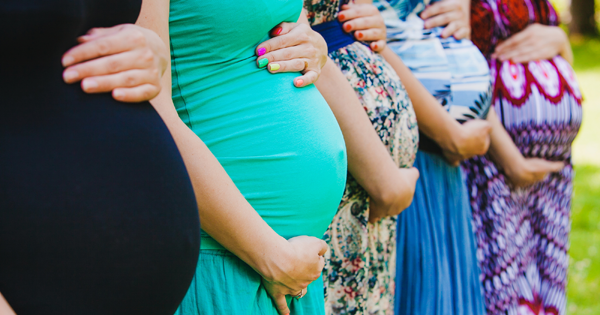Advertisement
Women in the U.S. are waiting longer than ever before to have their first child, according to a new report by the Centers for Disease Control and Prevention.
In the last 15 years, the mean age of a woman when she first gives birth has jumped from 24.9 to 26.3, said T.J. Mathews, a demographer at the National Center for Health Statistics and an author of the report published online Thursday.
While the difference may not seem significant at first glance, the slight shift in age for first-time moms is hugely important in highlighting some of the major trends we’ve seen over the last few years.
As the researchers point out, the main cause pulling the mean age of first-time mothers up is the sharp decrease in the amount of teen moms in the U.S.
Over the last 15 years, the number of first-time moms under the age of 20 has greatly dropped from 23 percent to 13 percent.
As it turns out, this new number is not actually the result of an increase in abortions amongst teens. In fact, the abortion rate has been declining since the 1990s.
So, why are there less teen pregnancies these days? Matthews told Shots that, in short, the reason seems to be "less sex and more contraception."
This is wonderful news, according to Dr. Priya Rajan, a specialist in maternal-fetal medicine at Northwestern University, who noted that teen mothers are at a higher risk of serious pregnancy complications like hypertension and anemia.
While a decrease in teen pregnancy seems to be the driving force behind these numbers, the authors say women of every race and ethnicity in the U.S. are simply just waiting longer to have kids.
Take a look at the chart below to see the numbers for yourself:





